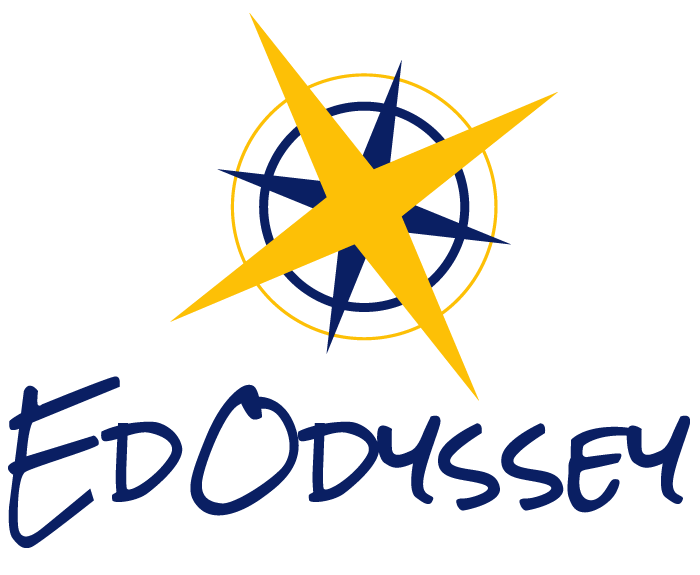Prioritizing Connection in a Digital World: Why Every University Needs First Year Experience Programs
“The most important thing in your life is your relationships. More than your job, more than your money, more than your health, your relationships define the quality of your life.” – Dr. Robert Waldinger, Director of the Harvard Study of Adult Development
The atmosphere across college campuses has changed. It’s a subtle shift, but a deeply consequential one.
At a glance, it may seem today’s students are more connected than ever before. Constantly tapping away on devices, their lives unfold across chat boards and social media comments, where it could be assumed that they are building and nurturing close college friendships.
But this is an illusion; real-world statistics spin a different story—a tale of surface-level interactions and a desperation for genuine connection.
Dr. Waldinger leads the 85-year-long Harvard Study of Adult Development, the most comprehensive study on happiness that has ever been conducted. Results show that close relationships matter more than anything else when it comes to quality of life.
And yet we’re seeing historic highs from research on rates of loneliness. The US Surgeon General, Dr. Vivek Murthy, has even called loneliness an epidemic, noting that its effects are as dangerous as smoking 15 cigarettes a day.
Gallup data found that young men are disproportionately impacted, with even fewer close friendships than young women. NYU Professor Scot Galloway (“Prof G”) has been one of the loudest voices highlighting this crisis and the long-term emotional and societal consequences that have come with it. He notes in his podcast “No Mercy / No Malice” that, “in 1970, men accounted for 60% of college enrollment. That number has decreased to 40%. This largely reflects a dwindling male applicant pool. Women now submit 35% more college applications than men.”
To top off these statistics, our world is now rapidly being reshaped by AI. Yes, we delight in the efficiency and innovation that has come with it, but it has also quietly contributed to an increasingly overwhelming sense that we are moving further away from the human experiences that have historically given meaning to life.
“Students are craving connection—not another app, but a human moment that grounds them and makes them feel seen,” EdOdyssey CEO and Founder Peter McGovern said. “The future of education isn’t more content; it’s more connection.”
So, where do we go from here?
FOSTERING CONNECTION: THE ROLE OF FIRST YEAR EXPERIENCE (FYE) PROGRAMS
Getting young men back into higher education and helping all students build real, authentic connections while navigating life in a digital world is not a small task. First, though, we need to meet students where they are.
And research has shown that FYEs can play a critical role here.
Not only do these programs ease a huge life transition and improve the success and retention rates of first-year university students, but they also offer an attractive opportunity to young people who are looking for a sense of belonging and community at a time when they need it most.
Our team at EdOdyssey ensures that our FYE programs are designed to meet the unique expectations of today’s students, taking into account their emotional, social, and intellectual needs. We’re small and independently-owned, which gives us the freedom to prioritize thoughtfulness and values, to work closely with our partners, and to create high-touch, transformational experiences that tap into own relationships with local communities that we’ve developed over many years.
We focus on building connections through place-based programs.
Students not only cultivate familiarity with their surroundings, but also develop interpersonal skills in a real-world context. Our excursion leaders guide them to engage not only with the location they’ve come to explore but with the local community, and, importantly, with one another.
To achieve this, we lean into the power of experiential learning.
Students navigate unfamiliar environments, build confidence and a stronger sense of self, and then return to campus with a clearer understanding of their place in the world and what gives their life meaning. They also return with a network of peers who have become friends through shared experiences, inside jokes, and stories that only they can tell.
They return with a built-in community. “Connection to a place can be as vital as connection to people,” Peter said. “Together, they create belonging. When students find their people and their place early, it changes everything. That’s the quiet power of an FYE.”
And this becomes the foundation for success.
FYE PROGRAMS: A NECESSITY, NOT JUST A NICE ADDITION
As we enter our second decade here at EdOdyssey this month, we believe strongly that FYE programs have a place in every college and university. There is too much evidence to suggest otherwise in a world where students are struggling and their challenges will only continue to grow.
We see firsthand how these programs transform both students and universities.
“With every FYE we design, we’re not just building a program; we’re building belonging,” Peter said.
Real human connection is a lifeline, not a luxury, and it has become increasingly elusive. There is no algorithm or chat app that can replicate the sense of belonging that students gain from the real-world connections that FYEs can offer them.
If, like our team at EdOdyssey, your institution cares deeply about helping students succeed academically, socially, and emotionally as they enter this new phase of life as college freshmen, let’s start a conversation.
We can work together and give them both the tools and community connection that they need to thrive in our modern world, during the next four years and beyond.
“Travel changes people; people change the world,” Peter said. “Whether domestic or abroad, our FYEs are built to change students by grounding them in connection—to each other and to a place that becomes part of their story.”



